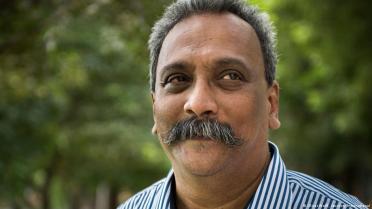Enora Haugmard France
India is a booming country, rich with diversities, but its territories haven’t developed equally everywhere. Indeed, some discrimination still exits between Indian inhabitants. Hopefully, the situation is evolving positively.
In India, there is a system that makes it possible to classify the population a thousand heredity groups called “caste”. The caste system was developed many years ago and still survives today. We can notice 4 major castes : Brahmin, Kshatriya and Vaishya, which are the upper class, and Sudra the lower one. It would be necessary to add the Untouchables (Dalits) which are left outside the other castes. Currently, the discrimination about caste is forbidden, however, it still continues to play a major role in Indian society.

Indeed, there is large-scale of abuses by the police, for example when some refused to fill a complaint or acting in collusion with the upper class. Upper class oppression lead to terrible actions, such as humiliation in public, paraded naked or raped with impunity. Dalits lives are very hard, in part of immoral actions that they have to face everyday; for example, their jobs which are unclean (cleaning latrines). Moreover, the Untouchables face lower wages and a terrible way of life.

But, the situation has been improving since XX century. An emergence of grassroots human right movements and organizations among Dalits has resulted.
People’s Watch organization by Henri Tiphagne was established on Dec. 10, 1995 in the state of Tamil Nadu. People’s Watch is at the heart of the human rights fight in India. The objective of this organization is to empower the victims of human rights violations, such as domestics violence, torture, child labor, harassment and of course, caste discrimination.

As Henri explain during an interview, People’s Watch is an association of volunteers that want to operate independently and without outside resources. According to Henri, he would like to act step by step instead of working throughout the country, because he wouldn’t possess the skills and the capacities to be able to make an entire state accountable. Thanks to their work, they provided immediate relief to 20,000 families, mostly Dalits affected by a tsunami.
On the 17th of July 2017, a man from India’s lowest caste was elected president. Ram Nath Kovind is the second president who came from Dalits. His election as president represents a support among the Dalits community. Although, the role of the president in India lacks any real executive authority, Ram Nath Kovind has a symbolic role. Traditionally viewed as “impure,” the group continues to grapple with persecution and exclusion.
His election as president represents a support among the Dalits community. Although, the role of the president in India lacks any real executive authority, Ram Nath Kovind has a symbolic role. Traditionally viewed as “impure,” the group continues to grapple with persecution and exclusion.
So, even though discrimination against Dalits still prevails, the situation has been improving and we can hope that it will continue in this way. But, unfortunately, the Untouchability is an entrenched and its hard to remove it. India is riddled with discrimination and prejudices, and that provokes huge consequences towards the lower class. Perhaps, we will have wait for its economic development to notice a real social evolution.
https://www.peopleswatch.org/our-work
https://en.wikipedia.org/wiki/Ram_Nath_Kovind
https://www.countercurrents.org/dalit-tiphagne070104.htm


 RACISM; THE FEAR OF CHANGE
RACISM; THE FEAR OF CHANGE 


